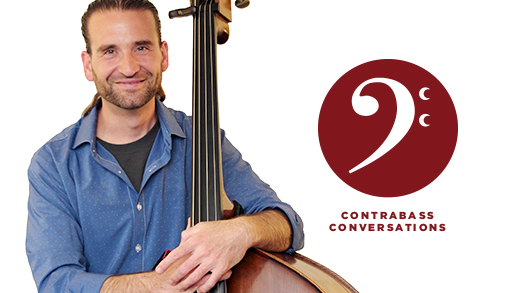We are featuring George Martin from Thomas and George Martin Violin Makers. Their shop has been making basses for over 30 years, and they have a wealth of knowledge about the instrument-making and restoration process. George and I dig into these details, talking about some of his most challenging restorations and what goes into making a bass.
Our recent Contrabass Conversations guest Marc Ramirez spoke with me about finding his Cavani bass at the Martin shop (that story starts at the 80 minute mark for that episode). It was a great story and a great talk in general–be sure to check out Marc’s interview if you haven’t yet–it was episode 173 of the podcast.
About the Martin Shop:
As many will know, The Thomas and George Martin Workshop is just north of the town of Banbury, England in an ancient hamlet.
It took us several months to turn an ancient open fronted stone barn into a sate of the art workshop to continue the family business of making and restoring fine stringed instruments.
The workshop is a warm and happy place to work with an easy working atmosphere. We have an outstanding team of highly skilled individuals who each play an important part in producing and restoring some of the finest instruments in the world. The workshop operation is cared for and managed on a daily basis by George, while Tom is often called in to give advice and check all the new basses. Please have a look at our meet the team page to get to know everybody better.
The workshop team has now produced a large number of double basses, several fine cello’s, and a few violas and violins. We have also had the privilege to repair and restore some wonderful instruments over the years as well as performing minor adjustment and set up work for players just starting out to the worlds best professionals.





